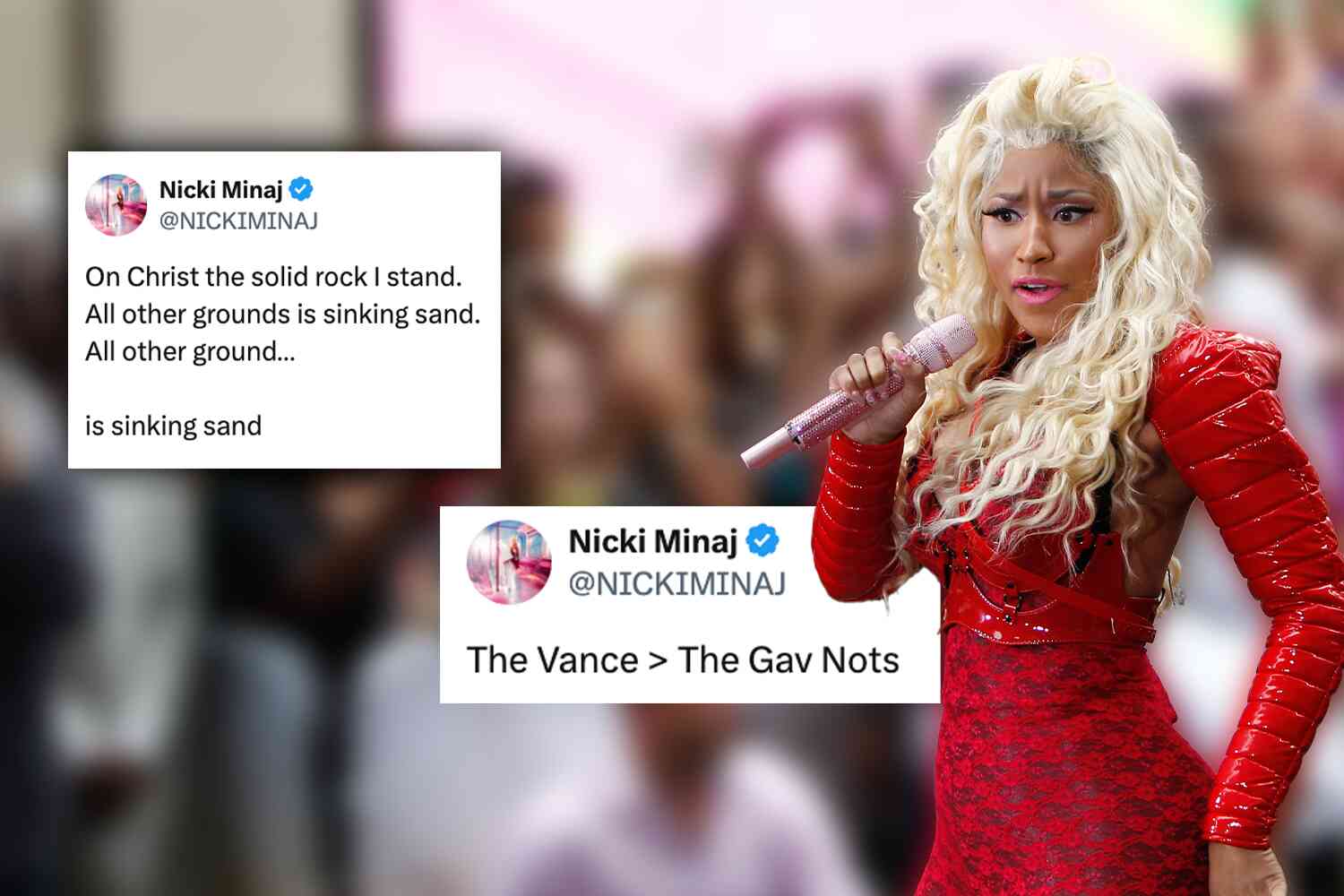First they came for the Sneetches, and I did not speak out — Because I was not a Sneetch...
Let's say you're one of Virginia's largest school systems sitting in the exurbs of Washington DC and you come to national attention because you caved in to the woke mob and look ridiculous for doing so.
What do you do?
- Stop and reflect for a moment as to why large numbers of thoughtful people find your actions objectionable?
- Revisit your decision-making process and the assumptions that underlie them?
- Take a step back and revisit the issue?
What am I talking about? This is the American educational system! We can't permit genuine intellectual exploration, not when there are agendas that need to be satisfied.
So, instead you come out and forcefully deny as "rumor" any suggestion you did such a thing based on a narrow technicality thus giving your supporters the green light to dismiss the whole controversy as right-wing propaganda and shut down the discussion.
"Media Rumors."
Not "parental concerns," not "community outcry," no, "media rumors."
They have no interest in having a real conversation with the public.
We can't have our public institutions doing that, it would be a sign of weakness!
No, they are here to instruct us as to what to think, and ensure the bureaucracy prevails.
During the past 24 hours, a media rumor is circulating that Loudoun County Public Schools (LCPS) has banned books written by Theodor Seuss Geisel (Dr. Seuss).
If you search, you can find some people saying that, but I literally had to search. Most credible sources are using the term "cancel" — appropriately, as you will see.
They are denying the only thing they can deny.
Dr. Seuss books have not been banned in Loudoun County Public Schools (LCPS). LCPS believes this rumor started because March 2 is "Read Across America Day." Schools in LCPS, and across the country, have historically connected Read Across America Day with Dr. Seuss' birthday. Research in recent years has revealed strong racial undertones in many books written/illustrated by Dr. Seuss.
That link they include takes you to a 2018 article in the "School Library Journal." We're going to dig into that in a moment.
Examples include anti-Japanese American political cartoons and cartoons depicting African Americans for sale captioned with offensive language. Given this research, and LCPS' focus on equity and culturally responsive instruction, LCPS provided this guidance to schools during the past couple of years to not connect Read Across America Day exclusively with Dr. Seuss' birthday.
I guess it doesn't matter that the examples they gave go back as far as the 1920s, and in fact it doesn't matter to the woke mob as you will see.
We continue to encourage our young readers to read all types of books that are inclusive, diverse and reflective of our student community, not simply celebrate Dr. Seuss. Dr. Seuss books have not been banned and are available to students in our libraries and classrooms, however, Dr. Seuss and his books are no longer the emphasis of Read Across America Day in Loudoun County Public Schools.
"Dr. Seuss books have not been banned and are available to students in our libraries and classrooms."
This, right after not only referencing the "strong racial undertones" of his work, but noting students are encouraged "to read all types of books that are inclusive, diverse and reflective of our student community."
Could the message be more clear? We're not banning them, you see. They're racist, and we encourage you to read things that are not racist, but hey, you are free to check them out of the library if you like.
You little racist.
Naturally, the national media made sure they fulfilled their role as PR spokespeople for the Woke Mob, with pieces like this:
No, a Virginia school district didn't ban Dr. Seuss books. Here's what really happened.
"Here's what really happened."
Love that.
The subheadline, just in case you didn't know where this was going:
Just how racist is children's literature?
Not, "is" children's literature racist, posed as a question, but "how" racist is it, as if the only argument permitted at this point is the matter of degree it's racist.
Writer Valerie Strauss faithfully parrots Loudoun's defense:
Loudoun, to be clear, did not ban Seuss books but did issue a statement saying that the district had provided guidance to schools in recent years to avoid connecting Read Across America Day to Seuss.
Technically true, they did not ban the books. Not yet (maybe Amazon will just deplatform them) but that avoids the real point.
It gets worse after that.
Strauss refers to an author she had interviewed about a book that Loudoun County also uses as a reference for their non-ban shaming.
Keep in mind, Wokism is a religion, and they have their own sacred texts. This is one of them.
This is the actual book we're supposed to take seriously:
Well, I... What?
Did not see that coming.
She includes excerpts from that interview with author Philip Nel. The following quotes are his:
[T]he Cat in the Hat is in the title because he's the ideal metaphor for the often unseen ways in which racism persists in children's culture.
"Unseen ways," is code for, "we're making this up." This is faux intellectualism, designed to make you feel inferior because you lack the capacity to see the unseen.
Just believe it, knave!
I question what capacity you must possess to see racism everywhere. I suspect it has something to do with being a racist.
To be clear (and contrary to some of the news stories on the book), my argument is not that the Cat in the Hat is racist.
Whew, that's a relief because I was about to say...
As a character, he is racially complicated, inspired by blackface minstrelsy and by an actual person of color — Houghton Mifflin elevator operator Annie Williams, an African American who wore white gloves and a secret smile.
See, he's not racist, he was inspired by... Wait, what?
Also, with reference to the blackface influence, it's not at all unusual to find apparently discarded racial images and ideas circulating in children's culture.
"Apparently discarded racial images."
Yes, discarded. That's key. I think he kind of glossed over that part. Let's unearth these because justice or something.
Blackface minstrelsy persists in the white-gloved hands of Bugs Bunny and the outlandish outfit (including white gloves) of Mickey Mouse. The Cat is not unusual.
I was born in the '60s. I've lived many decades. I have never, not once, associated white gloves with anything other than gloves that were white.
And why is Nel so familiar with minstrel tropes? I guess if you study that stuff (or surreptitiously enjoy it), you would, but normal people do not.
Minstrel shows were also known for doing skits.
Should Saturday Night Live come with a warning label?
The question is not only, was the Cat in the Hat Black? But what would it mean to us if he were?
He's a CAT. Are you insane?
Wait, are we insane for paying attention to him?
With that in mind, let's move on.
Other people we're supposed to take seriously (and are referenced by Loudoun County through its links) are Katie Ishizuka together with Ramón Stephens who did research into Seuss.
"Learning for Justice," an organization believed to be behind the push in Loudoun County, is quite fond of their work, which we'll get to in a moment.
The piece Learning for Justice wrote discussing it, "It's Time to Talk About Dr. Seuss" starts off reasonably enough.
You may have noticed that Read Across America has looked a little different for the last few years. Rather than exclusively celebrate the works of Dr. Seuss, as it had done since 1998, in 2017 the NEA shifted its focus to "Celebrating a Nation of Diverse Readers." They began prominently featuring titles focused on diverse American experiences.
Fine. More variety. Kids should read more than Dr. Seuss.
This year, Read Across America Day was preceded by the publication of a new study. Researchers Katie Ishizuka and Ramón Stephens examined 50 children's books and 2,200 characters created over Theodore Seuss Geisel's nearly 70-year career "to evaluate the claims that his children's books are anti-racist." Their findings were shocking.
It's never enough to bring new voices in. Other voices must be cancelled
I get it. You grew up on Dr. Seuss. I did too!
They're just like us!
If you're thinking you need to burn your favorite copy of The Sneetches or The Cat in the Hat Comes Back, I'd really rather that you didn't—we're all about environmental safety here.
Ha! Good one. See, this won't be so b...
If you're thinking you need to have some important conversations with your students? You're absolutely right.

Biographers, scholars and historians have always recognized the racist, Orientalist ideas in Geisel's early work; they're impossible to miss. But they have tended to argue that the problematic parts of his career were limited to his time as a cartoonist and ad man, years before he wrote children's books as Dr. Seuss.
Let's accept that for the sake of argument. There are completely legitimate examples of that.
Apologists tend to make two arguments about why this early bigotry doesn't matter:
"Apologists." Not thoughtful people thinking through the issue. Let's slur them at the outset as we allegedly present their viewpoints fairly.
The first is that Geisel was merely reflecting the humor of his day.
This is dismissed because not everyone was like that.
The second is that his multi-decade career as Dr. Seuss would essentially make up for his early public bigotry.
Keep that in mind for a moment.
With older students, you can address these arguments directly, discussing the degree to which cultural norms excuse biased language or actions, how harmful stereotypical representations can be and whether—and how—a person can make up for hurtful mistakes.
The bold text is my doing. I wanted to call attention to the approach.
Past indiscretions are not forgiven. There is no forgiveness. It's not even addressed by them, only reparations.
You must pay, and pay some more, to satisfy the woke mob, a goal that is in fact unattainable.
In other words, you'll be paying forever.
Moving on to the study done by Ishizuka and Stephens, Learning for Justice notes that:
The researchers behind this study set out to address "a gap in Seuss literature by revealing how racism spans across the entire Seuss collection."
They set out to address "how racism spans across the entire Seuss collection."
Interesting way to objectively approach a research project.
Responding to the idea that Geisel was simply a product of his time, they disagree. "[N]ot all White people ‘of his time' engaged in overt racism or used their platforms to disseminate racist narratives and images nationally and globally, as he did," they argue. "There are White people throughout history, and of his generation, who actively resisted racism and risked their lives and careers to stand up against it."
Again, he must be punished. Not forgiven, punished. These are not objective researchers. These are activists.
The researchers surveyed 50 Dr. Seuss books and concluded that, "of the 2,240 (identified) human characters, there are forty-five characters of color representing 2% of the total number of human characters."
That was Seuss's "lived experience." We're supposed to value that, right? We're supposed to assume that non-white authors include predominantly non-white characters, but it's bad when the reverse is true? What kind of message does that send to white kids? To my kid?
Of the 45 characters, 43 exhibited behaviors and appearances that align with harmful and stereotypical Orientalist tropes. The remaining two human characters "are identified in the text as ‘African' and both align with the theme of anti-Blackness."
I pulled up their original study, "The Cat is Out of the Bag: Orientalism, Anti-Blackness, and White Supremacy in Dr. Seuss's Children's Books" to get a better understanding of their work.
They had a coding system to identify these crimes against wokism, some of which were legitimate, many of which were subjective nonsense. To get an idea of where their heads were at, this was one of them.
Colorblindness: Deliberately race-neutral governmental policies said to promote the goal of racial equality rather than equity / ignoring race, racism, and the social, historical, and present effects they have / not "seeing color," including the cultural wealth of communities of color
Characters are deemed racist precisely because they were not racist.
"Equality" is not what they seek.
This is the poison that is "anti-racism."
Within the Orientalist definition, fourteen people are identified by stereotypical East Asian characteristics and twenty-nine characters are wearing turbans. Characters aligned with Orientalism are sometimes attributed an ethno-racial identity, but are generally situated within a colorblind lens, often from an unspecified nationality, race, or ethnicity.
So, putting a turban on a character's head, from a culture where he might very well wear a turban is racist — and also not doing that is racist.
Got it.
It goes on and on and on like that. They are obsessed with turbans. The word shows up 15 times.
People wear turbans. Let it go.
What about the Sneetches?
Let's return to Learning for Justice for a moment.
The solution to the story's conflict is that the Plain-Belly Sneetches and Star-Bellied Sneetches simply get confused as to who is oppressed. As a result, they accept one another.
Awww, what a great messa...
This message of "acceptance" does not acknowledge structural power imbalances. It doesn't address the idea that historical narratives impact present-day power structures. And instead of encouraging young readers to recognize and take action against injustice, the story promotes a race-neutral approach.
A "race-neutral" approach is not anti-racist enough. To be anti-racist, you must first be racist. Forever and always.
Back to Ishizuka and Stephens:
This is a problematic and misguided way of perceiving oppressed groups. Oppressed communities are generally fighting to hang on to their own culture and identity and not have it colonized, erased, marginalized, or appropriated by the dominant culture. Oppressed people want to be free of oppression, they do not want to be their oppressor.
This is straight up neo-Marxism.
Telling non-whites to resist adopting their "oppressor's culture" is how you end up with "anti-racist" math and condemnations of things like "individuality" and sentence these children to live a life of mediocrity.
Those aren't white things, they are good things. Math is good, western values of liberty and freedom and objectivity are good things that have nothing to do with being white. You don't have to abandon your culture to achieve. It's a false message, a false dichotomy, and a damaging one at that.
There are some cringe moments in Seuss's work, particularly early on, the researchers document many legitimate ones. Culture moves on. But this is not about addressing past transgressions. That would be easy enough to do.
How easy?
Ishizuka and Stephens' own research provides the answer, buried at the end.
They append a chart to their study in which they recorded the various transgressions they identified. 50 books were studied in all.
In the first few columns they tally up the number of white and non-white characters. The next set of columns note where white characters had speaking roles and label that as "White Hegemony" which is absurd. Yes, his characters are mostly white, his main characters are mostly white, he was white, we already discussed this.
The remaining columns are where they tick off instances of "anti-blackness" and "Orientalism." Those terms appear in their various forms, 45 and 48 times respectively including the title throughout their study. That's basically what the whole study was about.
How many books met their criteria to be "anti-black?"
Care to take a guess?
One.
How many included "Orientalism," according to them?
Eight, one of which was also "anti-black."
That's a total of eight overall.
No wonder they went after the Sneetches. They must have been incredibly disappointed.
A normal, emotionally well-adjusted person would just leave those off reading lists (heck, I only recognize one anyway) and toss in some other books from different authors. No problem, reading lists change all the time.
That they would not be satisfied with that tells you everything. They are the racists, not just towards whites, toward everyone and everything.
They want punishment. They want Seuss to pay. They want all of us to pay. They want to turn an enduring message of equality (not equity) like "The Sneetches" into something sinister.
Their study drips with resentment and hostility. They want you to be as miserable as they are.
And they won't be happy until that happens.









